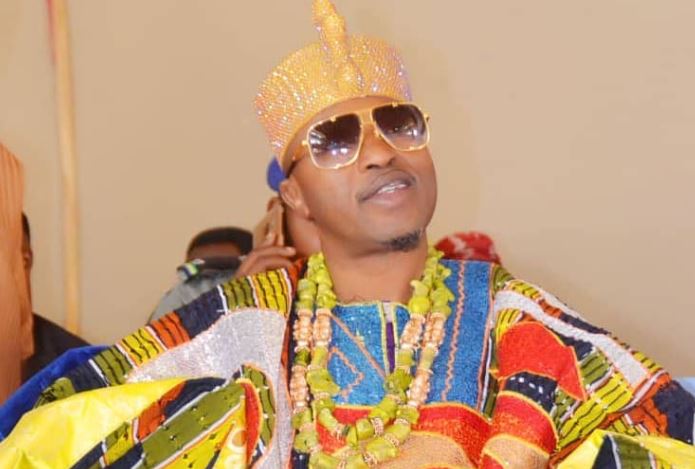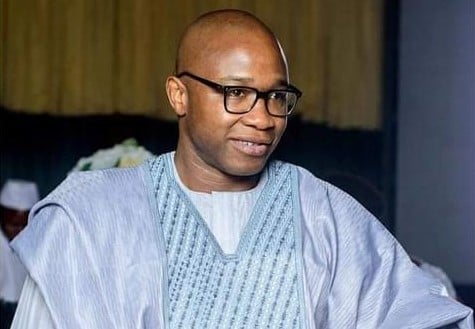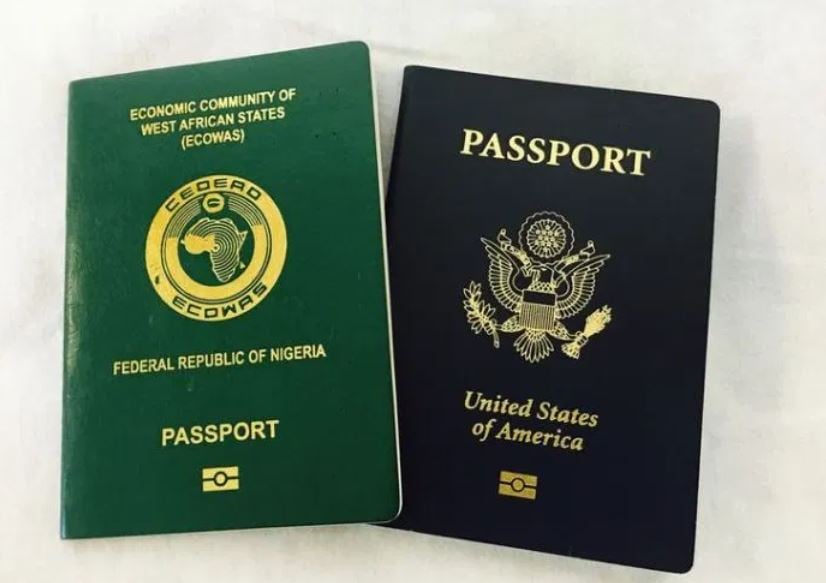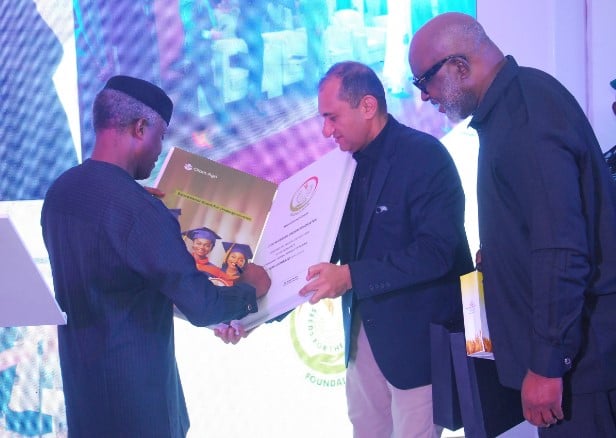Sometime in the 19th century, as he stood in the ancient town of Ijaiye in present-day Abeokuta, Ogun state, an American missionary, Richard Henry Stone saw a young man by the gate of the mission premises. The young man was prepping himself for a war expedition, probably the Ijaiye war. The young man boasted to the people who milled around him that the vest he wore over his coat was so fortified that no bullet could pierce it. From the outwards, however, the vest was made of shells. The missionary said that after he watched him swagger for a while, regaling the crowd gathered with his boastfulness, he told the young warrior that he had a gun in his possession and asked if they could try the efficacy of the so-called charm he wore on him.
The young warrior, upon hearing this, defiantly challenged Stone to shoot at him at short range. Arguments ensued and the young warrior was persuaded to take off the charm-laced vest and hang it on a tree. Stone then gave his native interpreter the gun with which he shot at the vest of charms. The bullets pierced and shattered the shells that festooned the vest. Struck to submission by the white man’s show of superiority to his charms, according to Stone, the warrior fell at his feet, worshipped him, and begged to be given some of his “strong medicine.”
Stone was an American missionary sent to Africa in the 19th century. He was a representative of the Southern Baptist Convention and spent his years of stay in Africa among the Yoruba-speaking people of Western Nigeria. He specifically lived in Ijaiye, Abeokuta, and Lagos, traveling to Ibadan, Lalupon – which he called “Lahlookpon” – Iwo, Ogbomoso, which to him were “Ewo and Ogbomishaw”. He actually met great warriors of Yorubaland like the fiery Kurumi of Ijaiye, Aare Ogunmola, and took time to study and report the ways of life of the people during this era.
While he appreciated the industry and neatness of the Yoruba of this period, Stone had nothing but disdain for the Yoruba worship of gods and idols. In the biographical sketch of his encounter which he entitled ‘In Africa’s Forest and Jungle’, Stone couldn’t hide his disdain for what he called Africans’ hideous idolatry. While observing the Ijaiye market, he was excited by the symphony and cadence of market mannerisms exhibited by Africans and portrayed their craft as admirable and excellent. He was excited by the industry demonstrated by the people but couldn’t fathom how the people harbored “misery (in) their inner life” due to the “hidden… recesses of their secret life (which bore) many hideous specters”.
Advertisement
At another time, Stone saw a boy said to be possessed by the spirit of “Shango,” the Yoruba god of lightning and thunder. He had come out of a compound that was near the mission chapel. A crowd of people, old and young, followed the young boy. The crowd, in Stone’s words, was “piteously beseeching him to spare them”. So the American missionary stood to observe the scene. The boy bore a “distorted and scowling countenance” and lit a torch of dried grass. He was about to burn the villagers’ houses. “What will you give me? What will you give me?” shouted the little boy, who Stone the missionary referred to as a fiend. In anger, the missionary yelled, trying to seize him by his Sango tuft, “I’ll give you something, you little imp of Satan!”. A dangerous and angry mob was however waiting for Stone. They bayed for his blood for committing such a sacrilegious act of confronting the gods’ messenger and hurled terrible curses at him in the process.
Stone was disdainful of Yoruba gods. He hurled unprintable names at the people’s spiritual lives and their minds which he said were filled with “spiritual darkness and nameless terrors”. The souls of the people he called “benighted” added to another disdainful superlative description he wore of the people, “shackled by superstition and idolatry”.
The above was how the white man, on a self-confessed civilizing mission to Africa, saw Africans and their religions. In Stone’s ascription, Sango was “the most terrible of their inferior deities” and in his dreadful attribution, he ranked the Oro cult as the next in terror and horror. “During my two years of residence in Abeokuta, the town was frequently given to Oro, and on these occasions, malefactors were punished and political matters of importance were transacted. The voice of Oro was frequently heard in the streets after dark. It began in a low moan, then rose to a kind of scream, and then sank into a moan. This noise was made by whirling a flat stick, but it was a capital crime for anyone to intimate as much. It was a capital crime, also, for any woman to remain on the streets after the voice of Oro was heard at any time,” he said.
Advertisement
Next in Stone’s classification was “Efa” – Ifa – which he called the god of secrets, which he said was “represented by a dove standing on a wooden plate on the margin of which is carved a single eye” and who had “devotees of that god carry sixteen consecrated palm-nuts”. And then, Ogun, the god of war, fitly represented by an iron bar and to whom “human sacrifices are sometimes offered”. Stone recalled how, on one occasion, devotees prostrated in worship before an immense python snake that appeared on the great central rock of Abeokuta with the people believing that the “tutelary deity of the city had assumed that form and taken up his abode under the rock, that he might look after their welfare”. To him, this showed how Africans’ “dark imaginations multiply terrors”.
I took my time to extensively unscroll the mind of African civilizing invaders of the 18th and 19th centuries so as to reveal similarities between them and the offspring of their conquest in dark skins who today are scattered all over Africa. I take my cue from the derision which the Oluwo, monarch of Iwo in Osun state, Oba Abdulrasheed Akanbi has for Yoruba idols. If you take your time to study Oluwo’s statements and actions since he became the king of this ancient town, you will discover that he is every inch Richard Henry Stone and his mind is of the same stature which harbors the same quantum of hate for Africa’s past.
Last Friday, a feature piece in the Punch newspaper revealed this. Tunde Odesola interviewed a respected former vice chancellor of the Obafemi Awolowo University in Ile-Ife, Professor Wande Abimbola, who is also the Awise Awo Agbaye. Abimbola was installed in 1981 by the late Ooni of Ife, on the recommendation of a conclave of Babalawos of Yorubaland.
The Awise had no kind words for the Oluwo and traditional rulers who he felt were desecrating their stools with their Stone-like vituperations against the culture and tradition of their people. Oluwo and his co-travelers had no business being on the stool, the Awise thundered.
Advertisement
As a tieback, the newspaper reminded its readers of how almost immediately after he was installed, the monarch began a campaign against Yoruba gods like Ogun, Sango, Obatala, Osun, and many others. In his vituperations against them, Oba Akanbi, just like Stone did, labeled those ancient objects of worship as effeminate, dead, and “retrogressive idols”. These were the same gods which his forefathers worshipped and which sustained traditional Africa for centuries. Islam, with its twin sibling, Christianity, in the thinking of the Oluwo, is superior to these “barren worships”. He does not bother to reflect that these religions made forceful incursions into Yorubaland with the aim of snatching the minds and thinking faculty of Africans. Trado-cultural practices, he also said, bear insignia of barren spiritism, and festive celebrations where these Yoruba gods were worshiped deserved to be consigned into the dustbin.
Abimbola’s response which I found worthy of a Nobel Prize if mere words qualified for Alfred’s yearly award, is “… ki won ba wa agbo ile tutu” meaning, “those close to the monarch should quickly get him a febrile convulsion herbal concoction”. Malaria is often a major precursor of febrile convulsion in children and is a major cause of morbidity and mortality in the developing world. It is dangerous in young children and is often preceded by high temperatures which ultimately lead to possible brain damage and death. What an unkind cut!
Abimbola was not done. Flotsam and jetsam, as well as riffraff, were now occupying the exalted stool of royal fathers in Yorubaland and this is because climbing those stools has become ten a dime.
“Yoruba traditional rulers are too many. They are over 10,000. So, there are no checks and balances to control their excesses. Some communities have between 30 and 40 Obas. Many of them who parade themselves as Obas today were Baales or heads of farmsteads. Kingship in the land has been so bastardized that some of them don’t even mind being kings over just their houses alone,” the revered professor said.
Advertisement
Oba Lamidi Adeyemi III, the exited Alaafin of Oyo – God bless his soul – and I always doubled down on the vanishing traditional stools in Yorubaland. When I listened to the profundity of Oba Adeyemi’s thoughts, his personification of tradition and culture in virtually every area of his life – clothing, words, depth, grasp of mores and lore of his people – I said to the Alaafin that we were witnessing an eclipse of the traditional institution in Yorubaland. And he agreed with me. When the institution now parades rulers who are certified fraudsters, social misfits, and who know little or nothing about the history of their people; who pervert virtually all the gamut of tradition and standing culture on its head, I said to the foremost Yoruba ruler that after him, except for one or two people, we were left with dregs. Many of the traditional rulers in Yorubaland today are on the stools for the material things they are able to extract from them – selling traditional lands and using the office to attract personal favours to themselves.
Richard Stone and all those who believe that Yoruba gods were barren must be talking absolute bunkum. That belief of their existence sustained the peoples of Yorubaland for centuries. It helped them in their crafts, and in inventions they made that suited their time and it constituted the core of the system that helped Yoruba kingdoms to administer their people. Those gods and the fear of them – whether they existed or not – were the cement that glued the moral corpus of traditional African society together. To claim that our forefathers, whose artistic inventions were so worthy that Europeans stole those artifacts and kept them in their museums, were pigheaded and didn’t have the mental power of discernment is a fallacy from the pit of hell. That is why Stone who, in a serpentine manner, got that young warrior of the 19th century Ijaiye town to renounce his belief in the potency of his ancestral magical power was reductionist in his stand on African magic. The gun Stone brought out to be tried on the warrior was apparently a pistol and the magic of Ijaiye was gun-specific; it was tailored specifically to bar dane guns and weapons of wars of that period from penetrating their users. To now use this to conclude that African magical powers were ineffective is reductionism at its highest decibel.
Advertisement
Of course, culture is dynamic and Africans will have to prune a huge portion of their bequeathals of chaffs. We will need to retain a huge part of them that haven’t gone otiose. One such is respect for elders. Born December 24, 1932, the highly venerated Professor Abimbola will be 90 years old in December. In the newspaper edition under reference, Oba Akanbi did not speak like one who had respect for a man that was old enough to be his father. The Oba also went into some indecipherable cants that fail the test of logic. “You cannot count from one to one zillion in Yoruba, yet you call yourself a Yoruba scholar. What is the essence of the Yoruba language when it doesn’t have meanings for so many scientific things? We need to upgrade the language. Who recognizes Babalawo or Awise in the constitution? It’s we, Obas, that are recognized by the constitution, not Babalawos,” he said in what he must have assumed were jibes against the professor. To many people, it is difficult to tease a grain of sense out of those statements. So, because you cannot count the Yoruba alphabet from 1 to zillion, they are impotent for scientific study? Is that what Chinese Mandarin base the efficacy of their language for use in teaching how to invent?
The monarch’s reason for sentencing idols to banishment was that traditional rulers were higher than Yoruba gods. Looks like it is a fight of ego here! Is it superiority or usefulness that is at issue here? Today, Yoruba traditional rulers are almost irrelevant in the lives of their people. It is said that they know the number of pending contracts in government houses more than the aspirations and vision of their people. The people too have abandoned them, conscripting them into remembrance only as antiquated pieces. Only traditional rulers who are able to connect with their people, lowering the guards of their egos will retain the respect of their people.
Advertisement
For traditional rulers to retain the respect and adoration of their people like natural rulers of old, they have to be abreast of the people’s culture and tradition. They should not be rulers who will scamper after material things and make confetti public shows of changing wives like chameleon changes colour. I have seen the Oluwo dress like the Sultan of Sokoto on a couple of occasions and was at an event where he barged in just to have an opportunity for a discussion with the Sultan. What is the difference between idolizing the Sultan and idolizing the gods of Yorubaland? The culture of our people counsels against coveting other people’s things and the need to be content with ours.
Those who disdain culture and the supreme teachings of the gods of Yorubaland, whether dead or alive, cannot understand the kernels of those eternal teachings. Granted that syncretism has seized hold of the African today as he switches between his received cultures/religions and ones he inherited from his forebears, there is a shuttle backward in this modern age to find out what made our forefathers tick. That is why trado-medicine is gaining currency and the damage done by orthodox medicines in our bodies is being interrogated.
Advertisement
Oba Akanbi and his fellow Obas of the Christian fold who talk down on the cultures and religions of their forefathers, no matter how they try to ape the Pope, Sheikhs, and Khalifas of the east, cannot earn the following and respect of their people. Binis earn the respect of the world today because they do not joke with their tradition and culture and their monarchs earn their respect because they do not abandon the teachings of their forebears.
Views expressed by contributors are strictly personal and not of TheCable.
Add a comment







